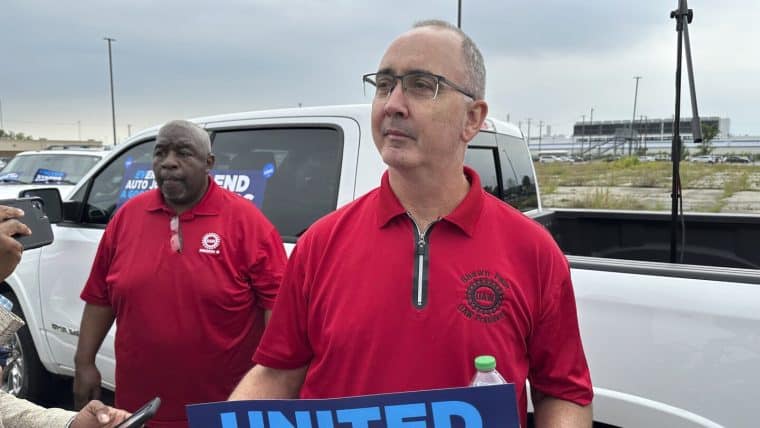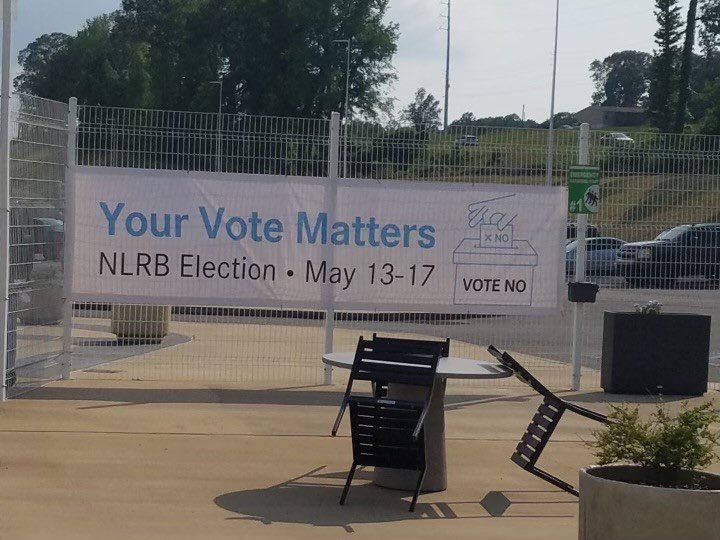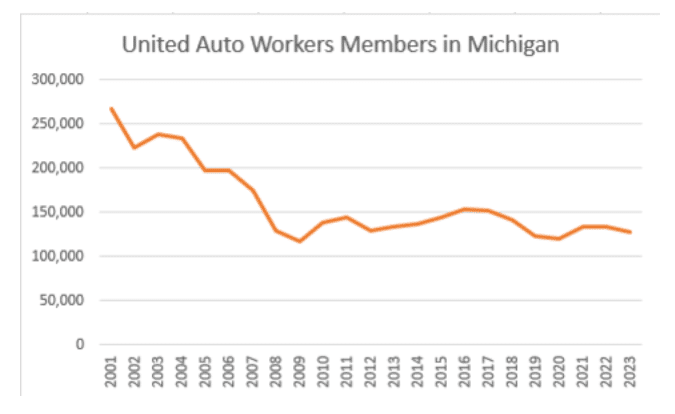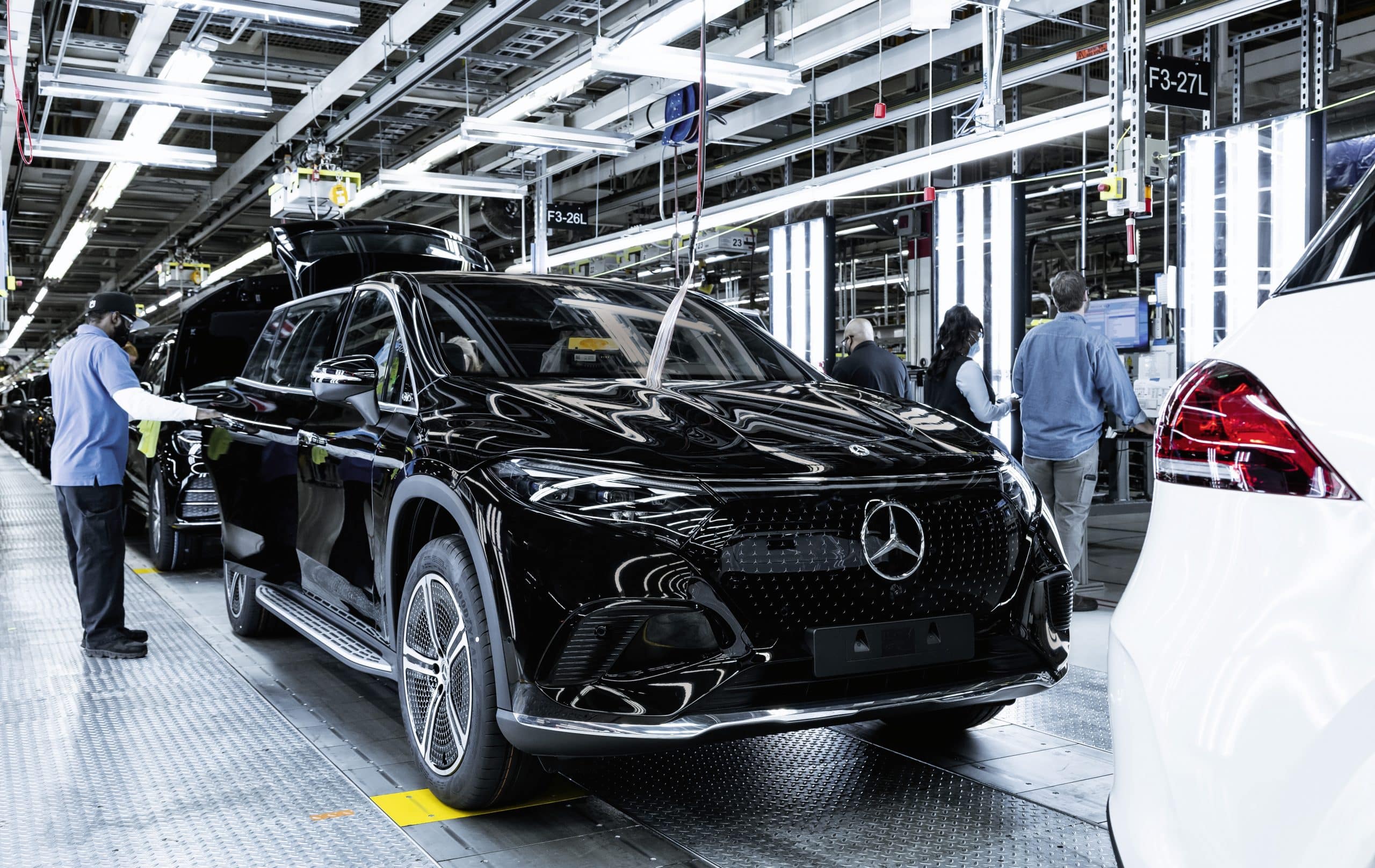The United Auto Workers (UAW) union just suffered a major setback in its effort to expand its reach in the southern United States as workers at two Mercedes-Benz facilities in Alabama decisively rejected an attempt from the organization to become their representatives.
The failed vote, which ended up with a majority of employees shunning the proposal, stresses the challenges faced by unions in a region that has been historically hostile to organized labor, particularly within the automotive industry. The tide seems to have shifted with multiple major union victories in the South, but this particular plant wasn’t ready to make the change yet.
When the final tally was announced by the National Labor Relations Board (NLRB) on Friday, the results showed mixed opinions, but clearly favored the ‘no’ side. In summary, a total of 2,642 workers, or 56% of those who cast ballots, voted against joining the UAW, while 2,045 voted in favor of unionization.
A Closely Watched Vote and Impressive Turnout
The high-stakes election, which started on Monday and concluded on Friday morning, invited approximately 5,000 eligible employees across the Mercedes-Benz US International (MBUSI) assembly plant in Vance and the nearby battery facility in Woodstock to have their voices heard.
Also read: Mercedes Integrates ChatGPT Into Its Infotainment System
With an impressive turnout of over 90%, the outcome represents a clear statement from the company’s workforce, one that will undoubtedly send shockwaves across the automotive industry and the broader unionization movement.
In the aftermath of the vote, UAW President Shawn Fain acknowledged the setback but praised the “courageous” attitude of workers who supported the union’s efforts.

“They want justice. They lead us, they lead this fight. And that’s what this is all about,” Fain commented. He emphasized that, regardless of the loss, workers within the two factories managed to negotiate beneficial clauses and concessions with Mercedes to improve their conditions and compensation.
Fain’s defiant tone tried to obscure the severity of the loss, which came just a month after the UAW scored a significant victory by successfully organizing workers at a Volkswagen plant in Chattanooga, Tennessee – a breakthrough moment that managed to raise hopes of further gains in the region. Experts believed that this victory could be a turning point to inspire workers at plants across the South to unionize and that could still happen, but it hasn’t yet.
“Justice isn’t just about one vote or one campaign. It’s about getting a voice and getting your fair share,” the union leader stressed.
Mercedes’ Response and Accusations of Anti-Union Campaign
Mercedes-Benz, for its part, welcomed the result, stating that they were satisfied with how employees were eager to participate in a fair election. “We thank all team members who asked questions, engaged in discussions, and ultimately, made their voices heard on this important issue,” the company said, reaffirming its commitment to working directly with employees to ensure that MBUSI remains an attractive employer.
Also read: As the Power of Unions Rises the Auto Industry Rushes to Replace Workers With Robots – Are You Next?
The UAW reportedly faced significant opposition from Mercedes, local business leaders, and Republican politicians, who pushed forward a vigorous campaign against its unionization efforts. In fact, some workers have accused Mercedes of meddling in the election in various ways, including by putting up a banner that suggested that the workers should vote no.

GOP politicians have long been anti-union, passing various restrictive laws over the years. Six southern governors, led by Alabama’s Kay Ivey, issued a joint statement warning about “special interests looking to come into our state and threaten our jobs and the values we live by.”
Meanwhile, lawmakers from Alabama defied the initiatives of the UAW. Among them, the speaker of the state’s House of Representatives deemed them a “dangerous leech.” Strangely enough, he even lobbied to pass a law that punished companies who voluntarily conceded to the union’s efforts.
Reasons Behind the Rejection and Worker Sentiments
While the UAW had accused Mercedes of underpaying its workers and filed multiple unfair labor practice complaints with the NLRB, the automaker denied any wrongdoing and maintained that it provides competitive compensation and benefits to its employees.
For some workers, however, the decision to reject the UAW’s involvement may have been influenced by a range of factors including concerns over the union’s past corruption scandals, fears of potential job losses, and a general distrust about the motives behind organized labor and its impact in the workplace environment.
“The union is a political entity. I don’t want my money going to certain causes or politicians that I don’t support,” said James White, a longtime Mercedes worker who voted against unionization, echoing a sentiment shared by many in the region.
Others, like Melissa Howell, a 19-year veteran of the Mercedes plant, expressed skepticism about the need for a union, citing recent efforts by the company’s leadership to address worker concerns and improve communication. “We have the company’s ear, for the first time in a long time,” Howell said, adding that a future unionization vote could be considered in a year if the management team fails to deliver on its promises.
Meanwhile, for Rick Webster, a worker in the plant’s general assembly area who voted in favor of the UAW, the primary factors that motivated him to cast a “yes” vote included improving his work-life balance and having a greater say in scheduling and working conditions.
“The No. 1 issue for me is a better work-life balance,” Webster said, citing the 10-hour shifts required by the factory and workers’ lack of input on matters like their vacation time.
Workers’ Disappointment with the Alabama Setback May Not Slow Down the UAW’s Ambitions

The defeat in Alabama is a significant setback for the UAW’s broader campaign to organize foreign-owned automotive facilities across the South, a region that has historically proven inhospitable to unions.
“The forces opposing workers who want to organize a union are powerful and relentless, especially in the American South,” said Seth Harris, an expert in labor policy who advised President Joe Biden at some point.
The UAW’s aggressive efforts to expand its membership, fueled by a $40 million investment through 2026, have targeted facilities owned by a range of automakers including BMW, Honda, Hyundai, Kia, Nissan, and Toyota.
The union claims to have rallied the support of over 10,000 non-union auto workers for its campaigns and is already actively pursuing unionization efforts in more than two dozen facilities across the country.
However, the Alabama setback could reduce workers’ enthusiasm at other sites according to Abe Walker, an assistant professor of sociology and union-strategy researcher at Fayetteville State University in North Carolina,
However, Walker acknowledged that President Fain has managed to devise a “methodical strategy” that allows the organization to pursue and engage in battles on multiple fronts. This could give the UAW the flexibility it needs to keep pushing forward its unionization agenda in multiple regions at once.
Unionization Efforts Will Continue Despite the Aggressive Opposition of Automakers
As the UAW licks its wounds and prepares for future battles, the outcome in Alabama has reignited traditional debates about the strength of labor laws and the need for stricter enforcement mechanisms to protect workers’ rights to collectively negotiate for better pay and conditions.
“The UAW’s organizing drive among nonunion auto workers will continue, and they will have other successes building on their victory at the Volkswagen plant in Chattanooga, Tennessee, but these election results show us that it is going to be a lengthy struggle in which workers will win some battles and lose some others,” Professor Harris emphasized.
Fain himself echoed these sentiments, reiterating his allegations about the use of intimidation tactics by Mercedes during the campaign. “This is a setback, this is the same playbook they always follow — it’s ugly, it’s brutal and it’s wrong,” he said, referring to the union’s claims of unfair labor practices filed against the automaker.
As the dust settles, one thing is clear: the battle for unionization in the South is far from over. While the Mercedes vote may have dealt a temporary blow to the UAW’s ambitions, the union’s resilience and commitment to its cause suggest that this setback will only fuel its determination to continue fighting for the rights and interests of autoworkers across the nation.
